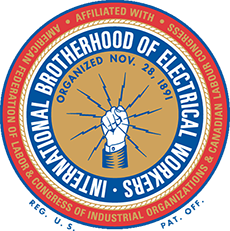Douglas P. Nelson, Business Manager
So-Called IRAPS Scrapped
The Department of Labor put the final nail in the coffin of the Trump administration’s attempt to allow industries to water down training standards by cheapening the value of the gold-plated labor-management apprenticeship model that has served the IBEW for generations.
Following President Biden’s move to rescind the Industry-Recognized Apprenticeship Program in the first days of his administration, the DOL has issued its final rule. Effective on Nov. 25, it cemented Biden’s initial executive order to rescind IRAPs when he took office early in 2021. The IRAP program would have conferred a journeyman status on training programs with far fewer standards for training and curricula.
The IRAP programs would also be able to pay so-called apprentices minimum wage and require little actual training, effectively substituting poorly paid unskilled workers to pad apprentice ratios and driving down the cost of nonunion bids on construction projects.
"Everyone's safety would be at risk," said IBEW President Lonnie Stephenson. "Our jobs demand meticulous attention to detail and a skill level honed through years of intense classroom and hands-on training. We build schools and hospitals, office towers and sports arenas, highways and bridges and the utility infrastructure that powers North America.
"Imagine working on those projects alongside people who could endanger you, not to mention the risks when those buildings and roads are opened to the public," Stephenson said.
The DOL said registered apprenticeships are “proven to be highly successful for both industry and workers and incorporates valuable quality standards and worker protections. This is consistent with the Administration's priority to expand Registered Apprenticeship because of its success as a pathway to the middle class and ability to connect a diverse workforce to family-supporting jobs.”
It further said the IRAP program does not align with the DOL’s priorities of providing high-quality training emphasizing apprentice safety and welfare. It found justification for the need for IRAPs flawed and the program unnecessarily redundant.

